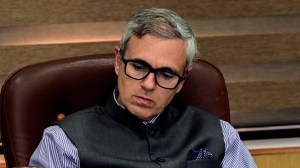IAAF rejects Johnson appeal
SEVILLE, AUG 16: Disgraced former world 100 metre champion Ben Johnson's hopes of having his life ban lifted in time to compete in the Sy...

SEVILLE, AUG 16: Disgraced former world 100 metre champion Ben Johnson’s hopes of having his life ban lifted in time to compete in the Sydney Olympics were dashed here today by a Special Commission for the International Amateur Athletic Federation (IAAF).
Athletics Canada had filed an application to the IAAF on Johnson’s behalf seeking his international reinstatement. But Istvan Gyulai, IAAF secretary general, reported: “After having spent a day with the athlete, accompanied by his solicitor and manager, we have recommended to the (IAAF) council not to agree to the request.”
The 37-year-old Johnson has twice been found guilty of doping. The first was three days after winning the 100M Olympic gold medal in Seoul in 1988 and the second was in Montreal in 1993.
The commission investigating his case comprised Helmut Diegel, Robert Stinson and Gyulai, its chairman.
Johnson was seen by this three-man panel on August 3 in Monaco after the sprinter argued that new evidence supported his claim for reinstatement.
In June, Johnson had spoken about his hopes of being able to compete in Sydney.
He said: “I don’t know how the IAAF will vote. I’ve got my fingers crossed and I just hope to god the wind will blow my way.
“It took me 15 years to be world No 1, so I am patient enough to get myself reinstated, but not that patient because time is running out on me to run again.”
Johnson’s rise was as quick as his fall.
After clocking a world record time of 9.79 seconds in Seoul he lost his his gold medal and the historic mark three days later when analysis of his urine sample showed the anabolic steroid Stanazohol.
Five years later he was tested again at the Hamilton indoor meeting and his sample was allegedly positive for a high level of testosterone. He was subsequently banned for life.
He has fought for the past 27 months for a review and reinstatement and won the support of Athletics Canada and the Canadian centre for ethics in sport.
Johnson was given hope of a reprieve by an arbiter’s decision in Canada which ruled that he should be allowed to seek reinstatement as Canadian track authorities had failed to make all of his appeal options clear at the time of his second positive drug test.
Canada athletics is in the process of contesting that Canadian ruling, claiming the arbiter, Graeme Mew, had erred in fact and matters of law.
But nevertheless it had decided to back Johnson’s IAAF appeal it said to protect itself against potential legal action.
Gyulai added: “We consider that the Canadian arbiter has no jurisdiction on IAAF rules, that the arguments were not sufficient and therefore that the Candian Federation had not made the wrong decision (in handing out the original ban).”
He went on to insist that sporting issues should be dealt with by the sporting world.







- 01
- 02
- 03
- 04
- 05
























